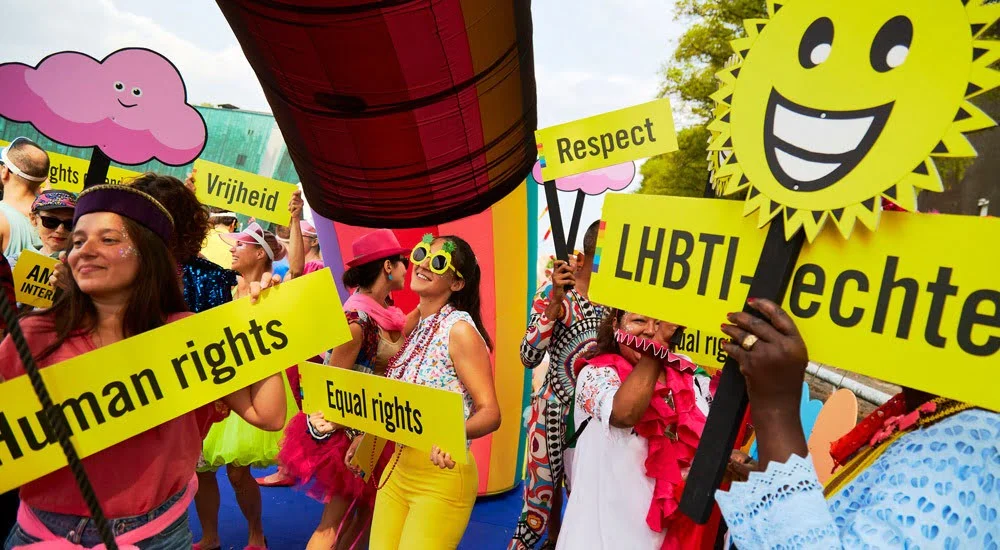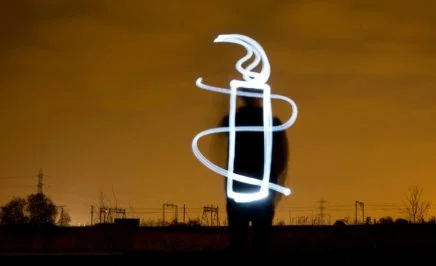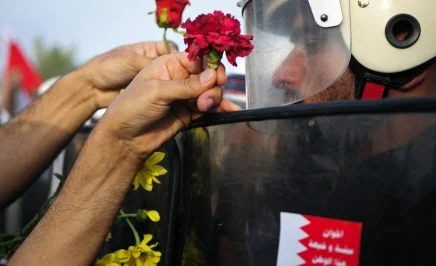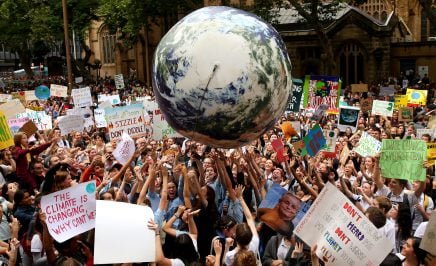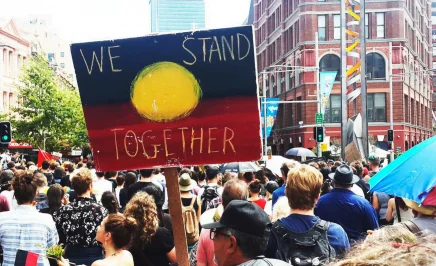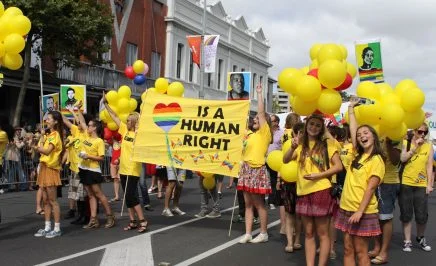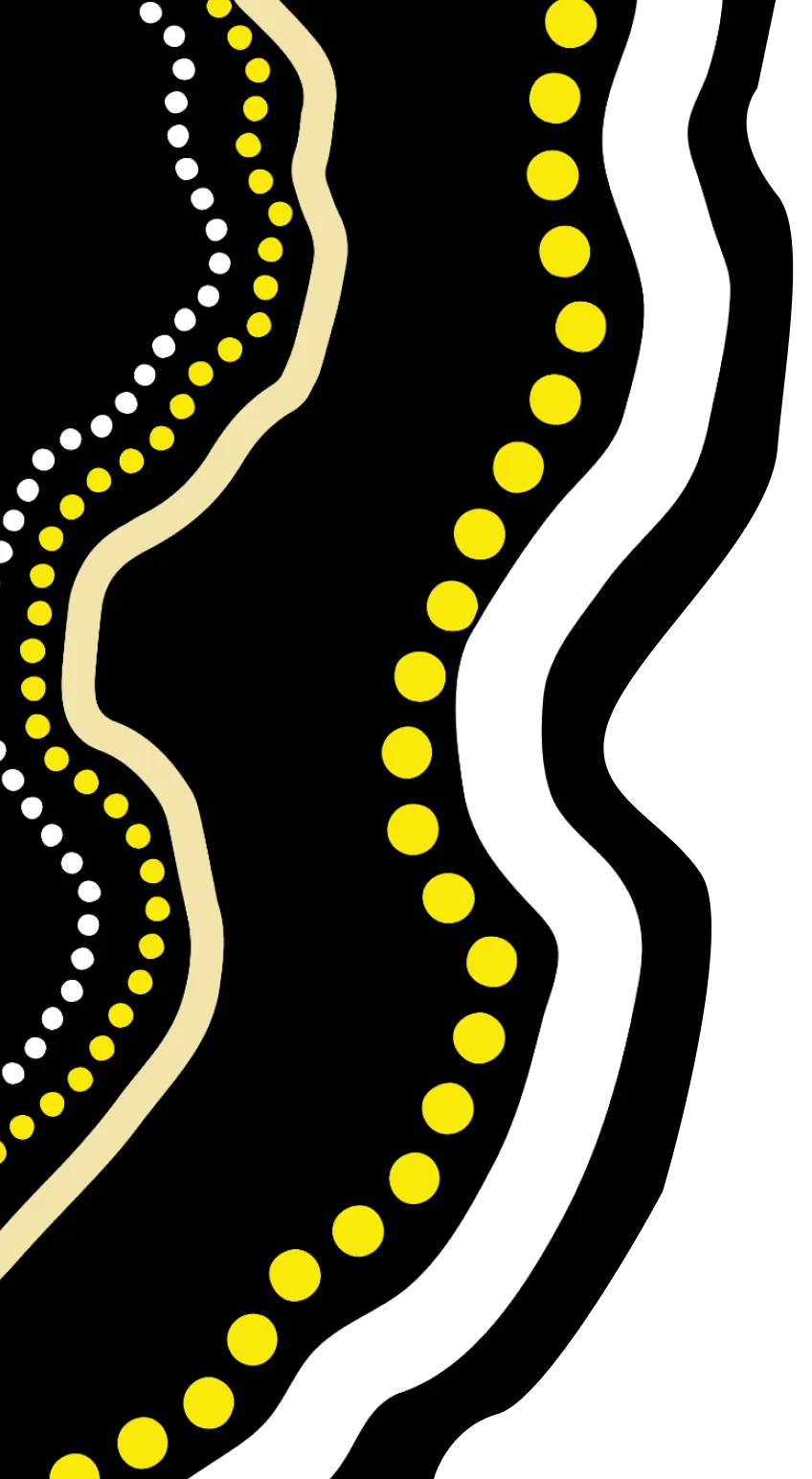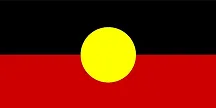Rights are hard won and easily lost. Fortunately, the world is full of determined people ready to stand up, organise, and take collective action. Here’s nine people-powered social change movements that are sure to fill you with hope.
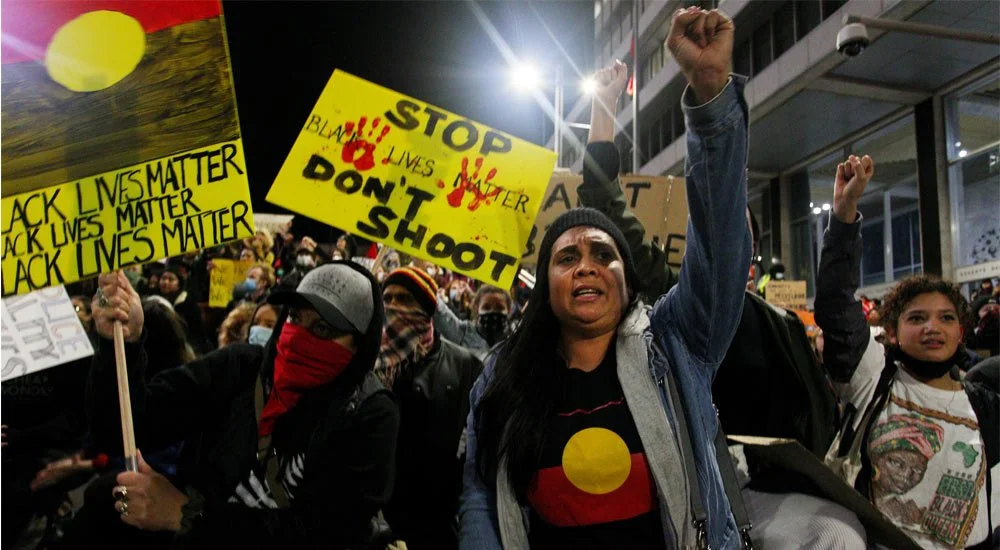
1. Black Lives Matter
With the killing of George Floyd by a US police officer in May 2020, the Black Lives Matter movement is an important one to support right now.
Activists Alicia Garza, Patrisse Cullors and Opal Tometi created the Black Lives Matter hashtag in 2013. It was part of their response to the acquittal of George Zimmerman for the killing of African-American teen Trayvon Martin.
Although it started in the US, Black Lives Matter is now a global human rights movement. It campaigns to end violence and systemic racism towards Black people and other people of colour. In Australia, Black Lives Matter has become synonymous with the 434 Aboriginal and Torres Strait Islander people who have died in police custody since the Royal Commission Into Aboriginal Deaths in Custody. Here’s some ways you can support Black Lives Matter in Australia.
“Black people. I love you. I love us. Our lives matter, Black Lives Matter”
Alicia Garza
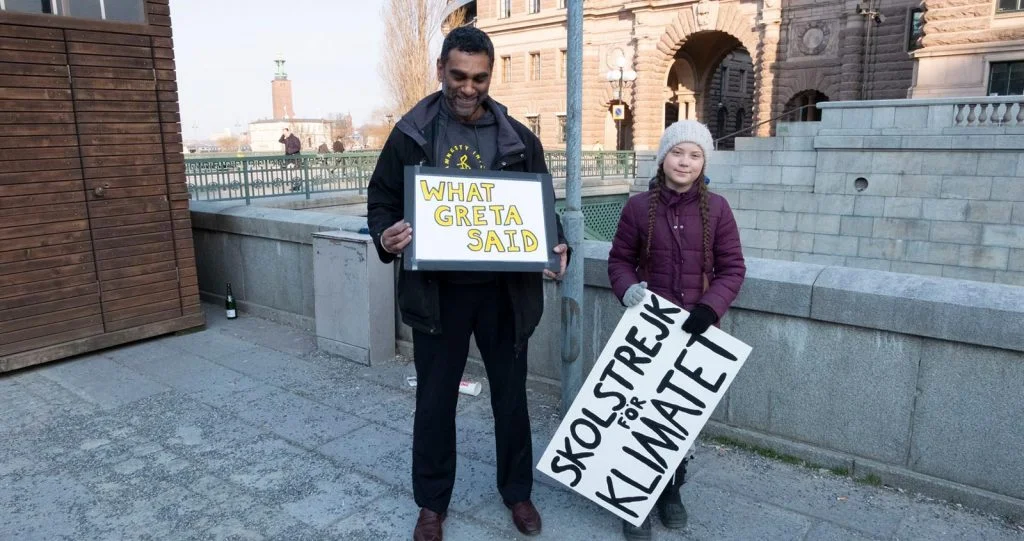
2. Schools Strike for Climate
One girl with a protest sign outside Sweden’s parliament every Friday inspired a worldwide movement in less than one year. The Schools Strike movement (also known as Fridays for Future) wants politicians to act now on the climate crisis.
Greta Thunberg and the Schools Strike movement dominated headlines in September 2019, when around 6 million people attended their climate protests.
“I want you to panic”
Greta Thunberg
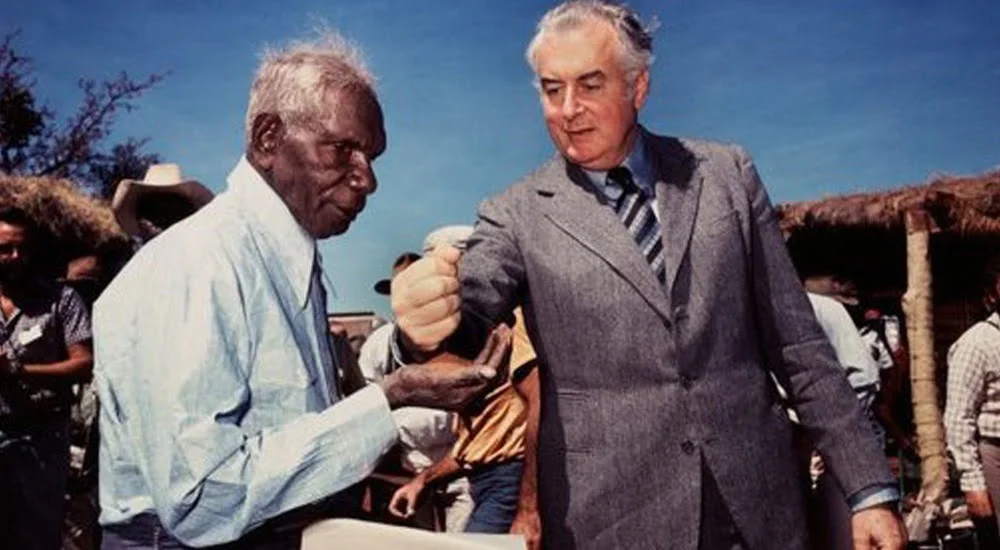
3. Indigenous land rights movement
The struggle for Indigenous land rights spanned decades. In 1963, the Yolngu people from Yirrkala in Arnhem Land presented parliament with the Yirrkala bark petitions, protesting to have their land and their rights returned.
A few years later Gurindji man Vincent Lingiari led 200 stockmen on the famous ‘Wave Hill Walk-Off’ for fair pay and decent working conditions. It soon sparked the Gurindji people to demand the return of their lands.
Torres Strait Islander man Eddie Mabo also played an important role. His campaign for land rights led to a High Court case that eventually overturned the lie of terra nullius.
“We want to live on our land, our way.”
Vincent Lingiari
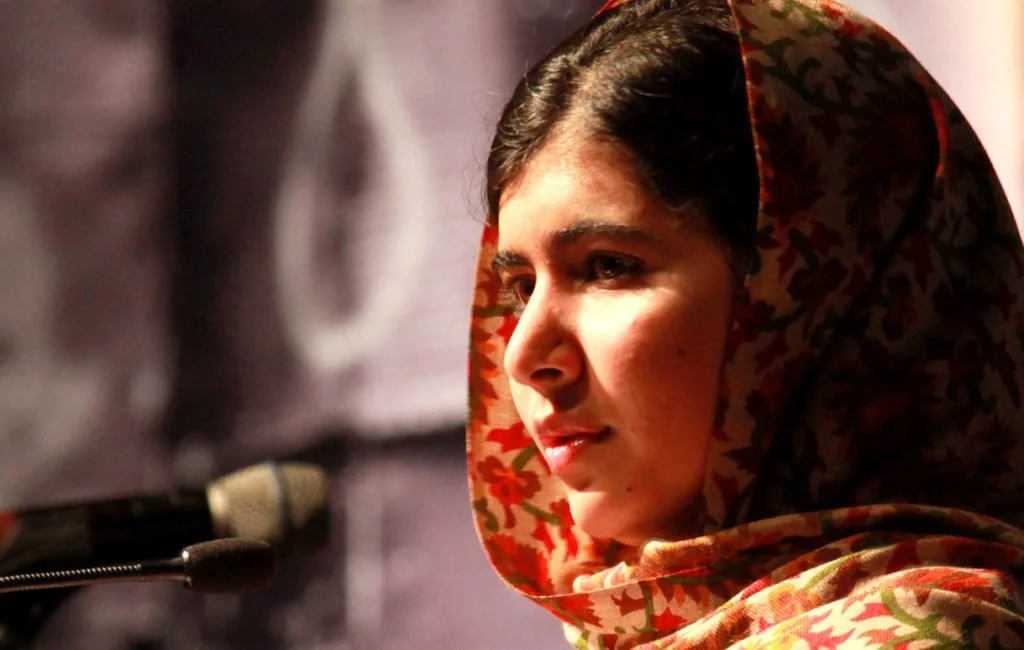
4. Girls’ rights to education
Malala Youfaszai grew up in the Swat Valley in Pakistan at a time when the Taliban had banned girls from attending school. Her peaceful promotion of girls’ education made her a target; the Taliban shot her on a school bus.
Malala survived. Today she still promotes women and children’s rights to education, working with young activists across the world. She is the youngest Nobel Prize laureate. If you haven’t yet read I Am Malala – do it.
“Let us pick up our books and pens. They are our most powerful weapons.”
Malala Yousafzai
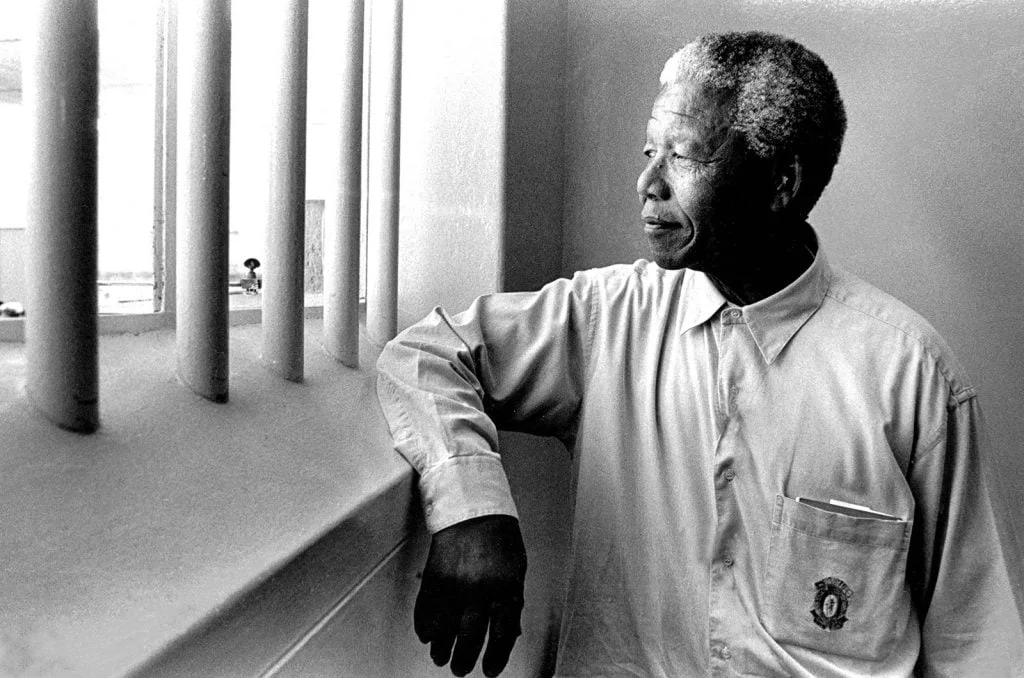
5. Movement against apartheid
South Africa’s apartheid policy of the mid-20th century sanctioned racial segregation. It barred non-white South Africans from political and economic equality.
People held strikes and protests against their government’s apartheid policy for decades. This, along with economic sanctions, led to the end of apartheid in the 90s.
Nelson Mandela played a central role in the movement, and spent 27 years in prison for it. After the dismantling of apartheid, Mandela became South Africa’s first democratically elected leader.
“It always seems impossible until it’s done.”
Nelson Mandela
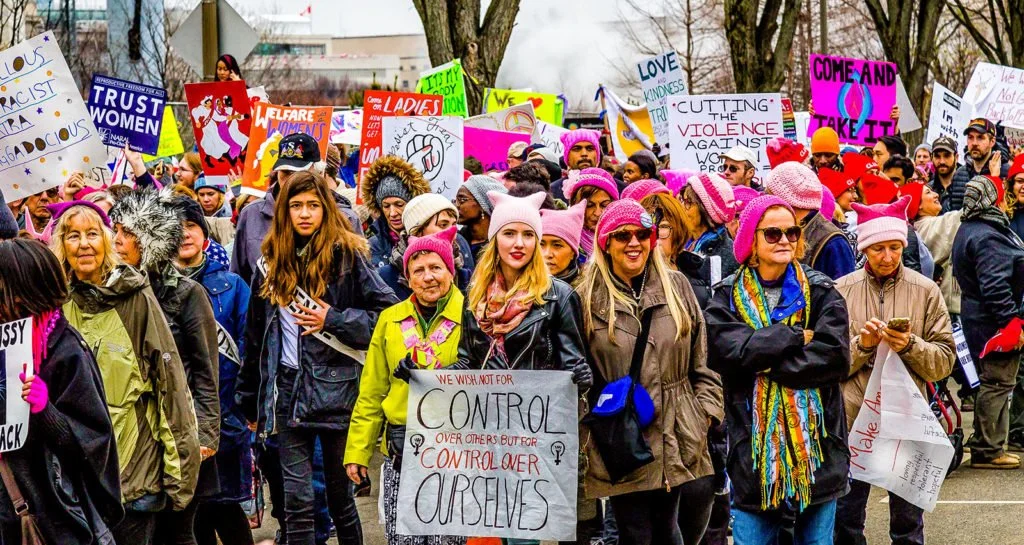
6. #MeToo
American activist Tarana Burke sparked the Me Too movement in 2006. She wanted to break the silence surrounding sexual assault, rape and harassment, and empower women through empathy and strength in numbers.
In 2017 the ‘Me Too’ hashtag went viral in connection to Harvey Weinstein. The movement has grown to include both men and women of all colors and ages, and aims to support marginalised people and communities.
“People are ready for something different.”
Tarana Burke
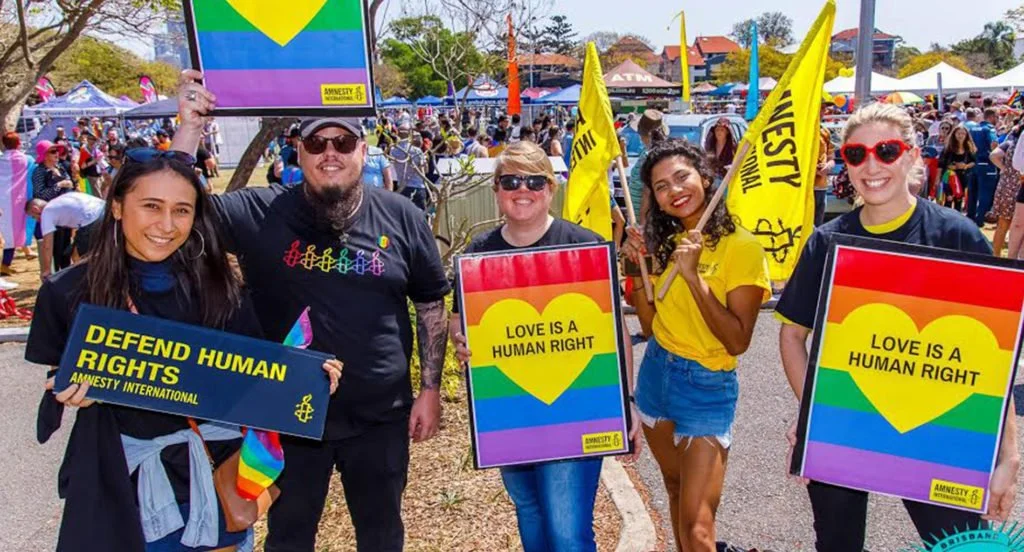
7. Marriage equality
On 9 December 2017, the right to marry in Australia was no longer determined by sex or gender. Hurray! Equality Australia estimates that 15,600 people volunteered for the Yes campaign.
Marriage equality happened after decades of work raising understanding and acceptance. In 1978, around 500 people marched in Sydney to protest inequality for LGBTQI+ people. Supporters would go on to hold this event every year, becoming the Sydney Mardi Gras.
There’s still a lot to do to ensure equality for LGBTQI+ people in Australia, such as banning harmful ‘conversion’ practices.
“We just made the country a fairer, more equitable and just place.”
Ian Thorpe
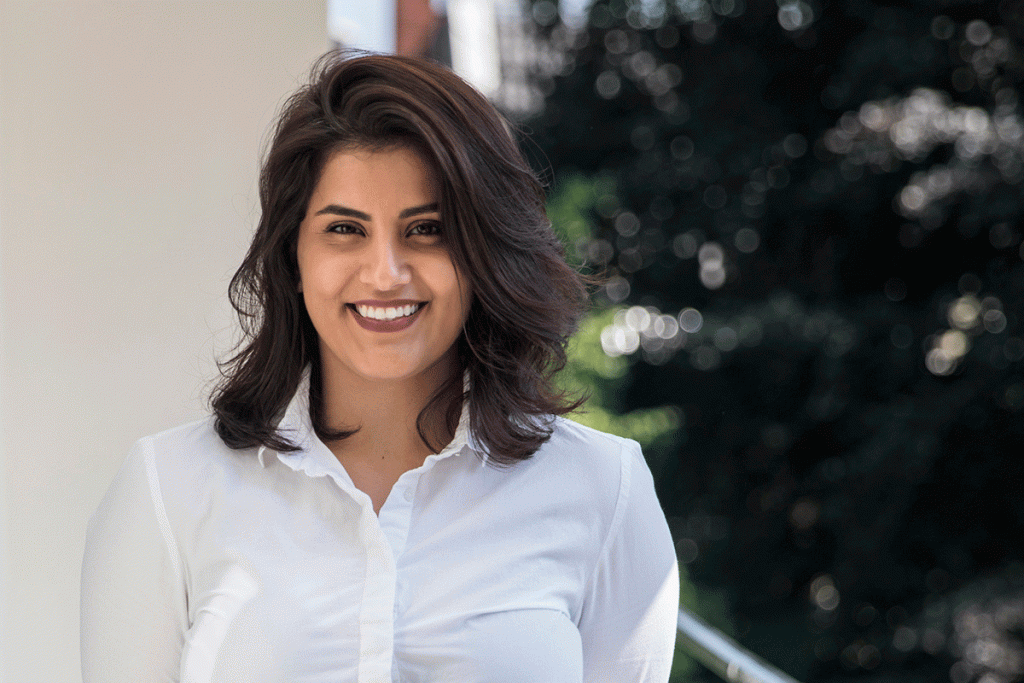
8. Women’s rights to drive, Saudi Arabia
Determined, peaceful protesters pushed the Saudi Arabian government to overturn its ban on women driving. The Saudi authorities arrested many for their peaceful protests. The authorities overturned the ban in June 2018. But it came at a cost; they again imprisoned some of the campaigners who had worked so hard to win the right to drive.
Activist Nassima al-Sada is still in prison. Saudi Arabia’s authorities have detained Nassima without charge since July 2018.
“The rain begins with a single drop”
Manal al-Sharif, Daring to Drive: A Saudi Woman’s Awakening
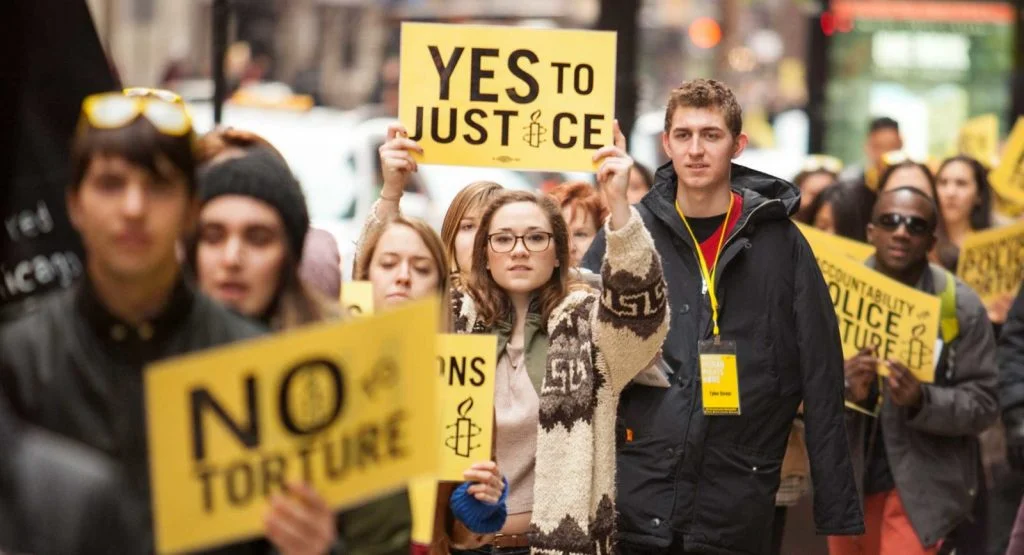
9. Amnesty International
Amnesty International began in 1961 when two Portuguese students were jailed for raising a toast to freedom.
In response, British lawyer Peter Benenson decided to collect and distribute information about ‘prisoners of conscience’ – people imprisoned, tortured or executed because of their political views or religious orientation. He gave life to the vision of collective action that defines our work today.
Since then, Amnesty has grown to a global human rights movement of over 8 million people in more than 150 countries and territories.
“Never doubt that a small group of thoughtful, committed citizens can change the world; indeed, it’s the only thing that ever has.”
Margaret Mead
Amnesty International is a global movement of more than 10 million people who take injustice personally. We are campaigning for a world where human rights are enjoyed by all – and we can only do it with your support. Act now or learn more about our human rights campaigns.
